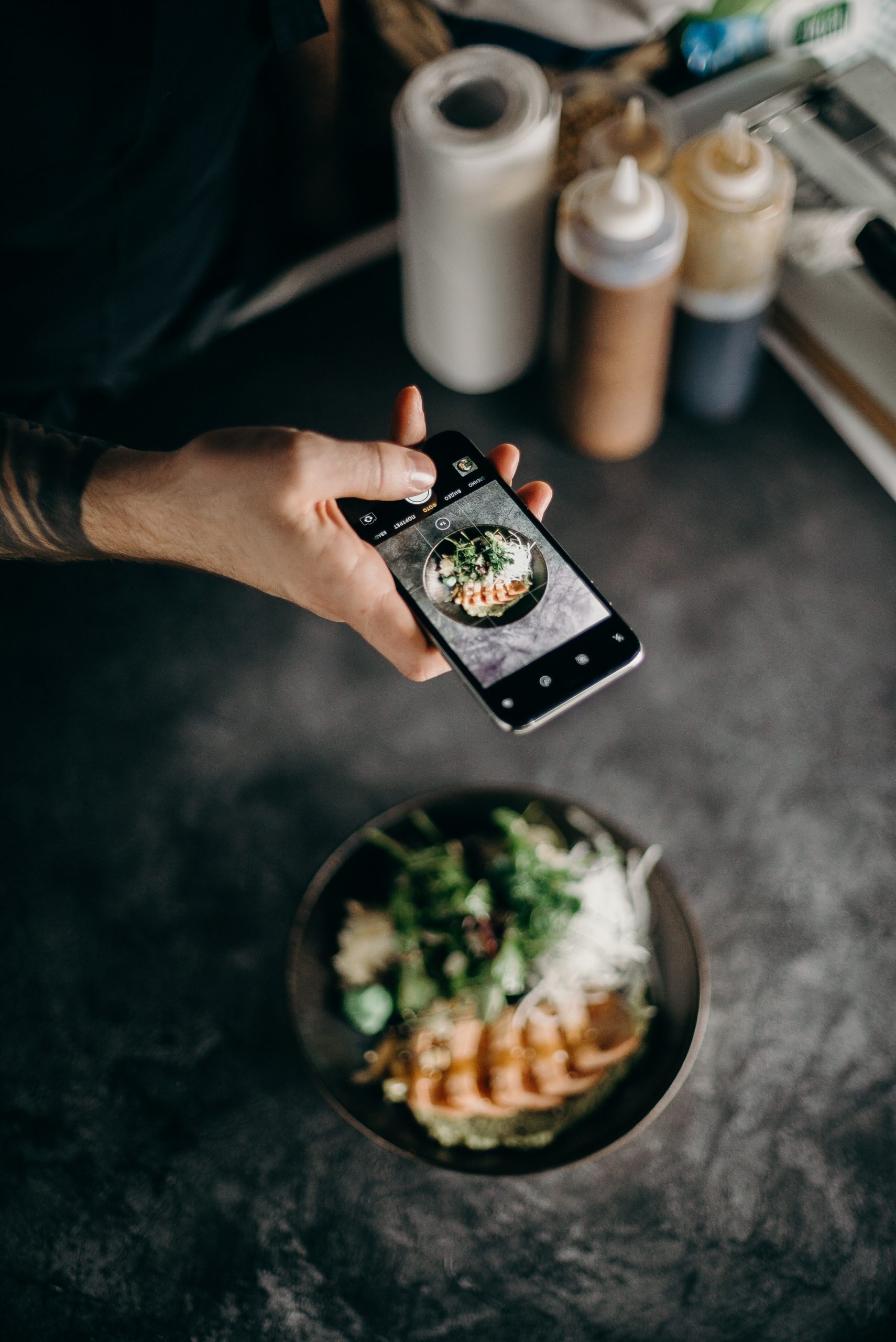For food and beverage PR, is it worth engaging influencers? The short answer is a resounding YES.
There are two main types of influencer collaborations for food and beverage PR: contra and paid (and often there will be a mix of both within a campaign). Paid influencers require a fee to create content for a brand and post it to their social account, and generally the higher their following (e.g. a reach of 100k or above) the higher the fee. Contra influencers collaborate with brands that align with their own platform and audience, in exchange for gifted product.
In previous blog posts, we discussed what food and beverage PR is, how it can help brands grow, as well as some of the main restrictions that are placed around the marketing of FMCG products. Now it’s time to dive deeper into influencer marketing and how it could help grow your brand and increase sales for the short term and long-term as part of a wider food and beverage PR strategy.
More consumers are on social media than ever before
Every day millions and millions of people use social media. As of June 2021, over 13 million Australians have an Instagram account, and the number keeps on growing. It is essential that brands are able to understand and leverage the power of social media as part of their food and beverage PR strategy to connect with their audience and raise brand awareness.
Across the world there are over 500 million daily active Instagram users, meaning that the influencer industry represents a huge opportunity for brands both large and small. And that’s just one platform – when it comes to food and beverage PR there’s also Tik Tok and Youtube that can be utilised for influencer marketing campaigns. Influencer marketing is paying off for brands big time, with companies reaping the benefits years after the fact. In 2016, the global influencer marketing industry was estimated to be worth around $1.7 billion dollars for brands, however it is now estimated to have climbed to over $13.8 billion. Furthermore, 68 per cent of consumers say that they come to the platform specifically to engage with influencers.
Influencer marketing allows you to reach highly targeted demographics
In recent years, there has been a rise in popularity for brands collaborating with ‘micro-influencers’ (an influencer with a smaller social media following, e.g. 25k or under). At first, micro-influencers weren’t seen as desirable collaborators compared to influencers with 100k+ reach, however it was soon realised by marketers that these micro-influencers had highly targeted, highly engaged audiences. Collaborating with carefully selected micro-influencers through contra gifting, product reviews, competitions and more, is a valuable food and beverage PR strategy that allows brands to communicate with their customers in a highly targeted way. If you engage enough micro-influencers throughout the course of a food and beverage PR campaign (e.g. 40 micro-influencers) all the smaller reach numbers start to add up, and before you know it, your product has actually been introduced to a large demographic of people.
Influencer marketing builds brand trust and credibility
Influencers can help with brand credibility as well as brand awareness in the food PR space. When an influencer endorses your product on their page, they’re lending your brand some of their own ‘clout’, enhancing your brand’s image and reputation. In other words, if a company can get an influencer with industry authority to notice and recognise its brand, it creates the perception that the brand is a trustworthy company and industry leader. In an industry as highly competitive as FMCG, brands need to work on building brand reputation, authority, and trust as part of their long-term food and beverage PR strategy.
Influencers are a great source of lead generation
Social media’s ability to connect customers with brands has grown astronomically over the past decade or so, and so has the power of influencers as sources of lead generation in the food and beverage PR industry. Most social networks now offer advertising formats that are precisely tailored and specifically designed to collect leads and help brands generate both web traffic and social media presence. When an influencer tags your brand’s social page or website in a post they’re directing their own audience base towards your brand’s digital channels, enhancing the capabilities of your Digi PR and expanding the reach of your brand’s online footprint.
In the highly competitive, constantly evolving world of food and beverage PR and FMCG products, engaging a targeted influencer strategy will help you to connect with the right audiences and generate cut-through above and beyond other brands in the market.
If you’d like to learn more about Agent99’s influencer marketing services, or our expertise in food and beverage PR, drop us a note at info@agent99pr.com.
By Agent Kath
